No products in the cart.
NEWS
Unlocking the Power of Bananas: Amazing Health Benefits You Need to Know
Bananas are a truly familiar fruit across Southeast Asia and a staple food for many. Their appeal goes far beyond their delicious taste; they offer a wealth of health benefits. As experts in agriculture and healthy living at Biogarden.Asia, we understand the importance of nutritious foods like bananas. Let’s delve into the incredible ways this humble fruit can nourish your body.
Nutritional Powerhouse: What’s Inside a Banana?
A medium-sized banana (approximately 100g) provides about 89 Calories. This includes roughly 22.8g of Carbohydrates, 12.2g of Sugar, 2.6g of Fiber, 1.1g of Protein, and 0.3g of Fat. Bananas are an excellent source of dietary fiber, rich in Vitamin B6, Vitamin C, antioxidants, and beneficial phytonutrients.
Carbohydrates: In unripe bananas, carbohydrates are primarily in the form of starch (around 80% dry weight). As the banana ripens, this starch converts into sugars. Ripe bananas contain less than 1% starch, with sugar content reaching up to 16% of the fresh weight.
Fiber: The abundant fiber content in bananas helps cleanse the digestive tract and acts as a “wonder tonic” for the digestive system. The main carbohydrate components, including resistant starch in green bananas and pectin, help regulate blood sugar levels and support colon health.
Vitamins and Minerals: Bananas are rich in Potassium, which can help lower blood pressure and is beneficial for cardiovascular health. Like many fruits, bananas contain Vitamin C and Vitamin B6, effectively boosting the immune system and contributing to collagen production, which connects tissues and organs.
Protein: On average, 100g of banana provides 1.1g of Protein, contributing to your daily energy needs for healthy bodily function.
Other Nutrients: Bananas contain powerful antioxidants like Dopamine and Catechins, along with other plant nutrients (phytonutrients) that offer significant benefits for our bodies.
10 Incredible Health Benefits of Bananas
Packed with Essential Nutrients
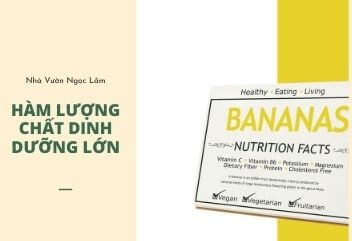 High nutritional content in bananas
High nutritional content in bananas
Bananas are incredibly familiar to people, valued not just for their sweet taste but also for their high content of beneficial nutrients. They provide a diverse range of nourishment, including ample fiber, essential minerals like Potassium, Magnesium, and Sodium, Vitamins B6 and C, and potent antioxidants.
May Support Healthy Blood Sugar Levels
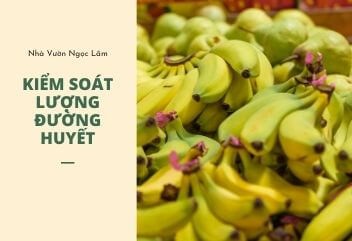 Bananas for blood sugar control
Bananas for blood sugar control
The Glycemic Index (GI) measures how quickly a food raises blood sugar. While ripe bananas have a higher GI (around 60) compared to unripe bananas (around 30), the average GI for bananas is about 51, placing them in the low to medium range. This means they can help moderate blood sugar spikes.
Furthermore, the Pectin and resistant starch found in bananas can support healthy blood sugar responses and improve digestive transit. However, individuals managing diabetes should consume ripe bananas in moderation and monitor their blood sugar levels regularly.
Support Digestive Health
 Bananas benefiting digestive system
Bananas benefiting digestive system
A medium banana contains about 3g of fiber, including Pectin and resistant starch (especially in green bananas). These fibers play a crucial role in promoting regular bowel movements and supporting a healthy digestive system. Bananas are also known to potentially help soothe stomach upset due to their ability to stimulate protective mucus production, aiding in the healing of irritated stomach lining.
Can Aid Weight Management
 Bananas for weight loss
Bananas for weight loss
More and more people are incorporating bananas into their diet plans for healthy weight management. A medium banana contains only about 89 Calories while still providing substantial nutrition. Eating fiber-rich fruits like bananas, which contain resistant starch, helps you feel full faster and for longer, contributing to a reduced calorie intake without compromising essential nutrients, thus supporting weight loss goals while keeping you healthy.
Boost Heart Health
 Bananas supporting heart health
Bananas supporting heart health
Bananas are well-known for their high Potassium content. A medium banana provides about 9% of the recommended daily intake (RDI) for Potassium. Adequate Potassium intake is associated with lower blood pressure and can significantly reduce the risk of heart disease by up to 27%. Bananas also contain a sufficient amount of Magnesium, another mineral important for maintaining a healthy heart.
Rich in Powerful Antioxidants
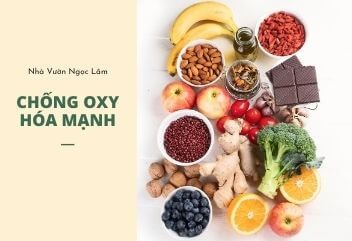 Antioxidant properties of bananas
Antioxidant properties of bananas
Generally, most fruits and vegetables are rich sources of potent antioxidants. Bananas contain notable antioxidants such as Dopamine and Catechins. These compounds not only help reduce the risk of heart disease but also contribute to protecting the body against degenerative diseases by combating oxidative stress.
May Support Healthy Insulin Response
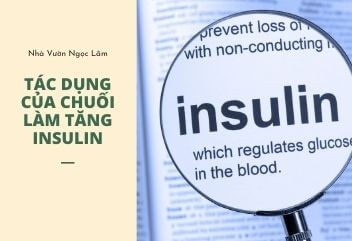 Bananas influencing insulin response
Bananas influencing insulin response
The primary component of bananas is carbohydrates, which naturally cause a rise in blood sugar, triggering the body’s insulin response. Insulin is essential for transporting sugar out of the bloodstream and into cells for energy or storage, helping regulate blood sugar levels. While carb-rich foods can lead to blood sugar spikes, the approximately 14 grams of sugar and 6 grams of starch in a medium banana, coupled with its fiber content, contribute to a more moderate blood sugar response compared to simple sugars, supporting a healthy insulin function in regulating blood sugar.
May Support Kidney Health
 Bananas beneficial for kidney function
Bananas beneficial for kidney function
Scientific research suggests that individuals who eat bananas 2-3 times a week may have a 33% lower risk of developing kidney disease compared to those who eat them less often. Beyond supporting heart health, the Potassium in bananas is also crucial for managing blood pressure and supporting kidney function. Incorporating bananas into your diet can help maintain healthy kidneys and improve overall well-being.
Excellent Fuel for Exercise
 Bananas as pre-workout snack
Bananas as pre-workout snack
Bananas contain ample carbohydrates and minerals that aid digestion and provide energy. Experts often recommend eating a banana 30-60 minutes before exercise to maximize performance. The carbs and minerals convert into energy during your workout, while potassium helps prevent dehydration and muscle cramps, making bananas an ideal pre-exercise snack. If you’re exercising for weight loss, eating a banana after your workout might be more beneficial. Combining a post-workout banana with a protein source can also effectively aid muscle recovery.
Contribute to Bone Health
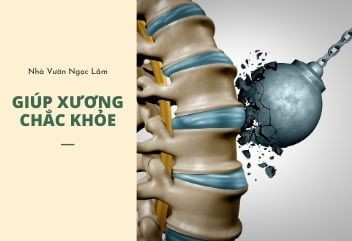 Bananas promoting strong bones
Bananas promoting strong bones
A 100g serving of banana contains about 329mg of Potassium and sufficient Magnesium, which is important for converting Vitamin D into its active form, thus promoting calcium absorption. Additionally, bananas provide other essential nutrients like fiber, powerful antioxidants, and Vitamin B6, all necessary for maintaining strong bones and potentially preventing or managing conditions like osteoporosis. Nutritionists often recommend bananas for patients with arthritis or degenerative joint diseases to help alleviate symptoms.
Important Tips for Enjoying Bananas Safely
Who Should Be Cautious?
Individuals with certain health conditions, such as some heart conditions, kidney issues, or those prone to migraines, should be mindful of their ripe banana consumption. It’s particularly important for people with diabetes to limit excessive intake of ripe bananas due to their sugar content, as this can cause blood sugar levels to rise.
Moderation is Key
Because bananas are high in Potassium, eating too many can lead to elevated potassium levels in the blood, potentially causing irregular heart rhythms and nausea in sensitive individuals. It’s generally recommended to eat 2-3 bananas spread throughout the day to benefit from their nutrients without overconsumption.
Avoid Eating on an Empty Stomach
Eating a banana on an empty stomach can cause a sudden spike in blood Magnesium levels, potentially affecting cardiovascular balance. While less commonly cited, some sources suggest the Vitamin C content might also irritate the stomach lining when eaten completely alone on an empty stomach. It’s best to avoid eating bananas first thing in the morning before consuming other food.
Best Time to Eat Bananas
The optimal time to enjoy a banana and absorb its nutrients effectively is typically 1-2 hours after a meal. This allows for better digestion and nutrient assimilation, contributing positively to your health. Avoid eating them when you’re very hungry or immediately after a large meal.
Certain Combinations to Avoid
While bananas are packed with fiber and rich in nutrients like Potassium, Magnesium, and Vitamins, certain food combinations might cause discomfort. Avoid eating bananas simultaneously with starchy tubers like potatoes or taro, as the combination of large amounts of starch could potentially lead to stomach upset. Combining bananas with watermelon should also be done cautiously; both are high in Potassium, and consuming large amounts of both together might be problematic for individuals with impaired kidney function. Combining bananas and yogurt might lead to digestive discomfort or diarrhea in some people.
Indeed, bananas can be considered a “wonder food” for human health. They are a familiar and accessible fruit that offers truly amazing benefits for our bodies.



